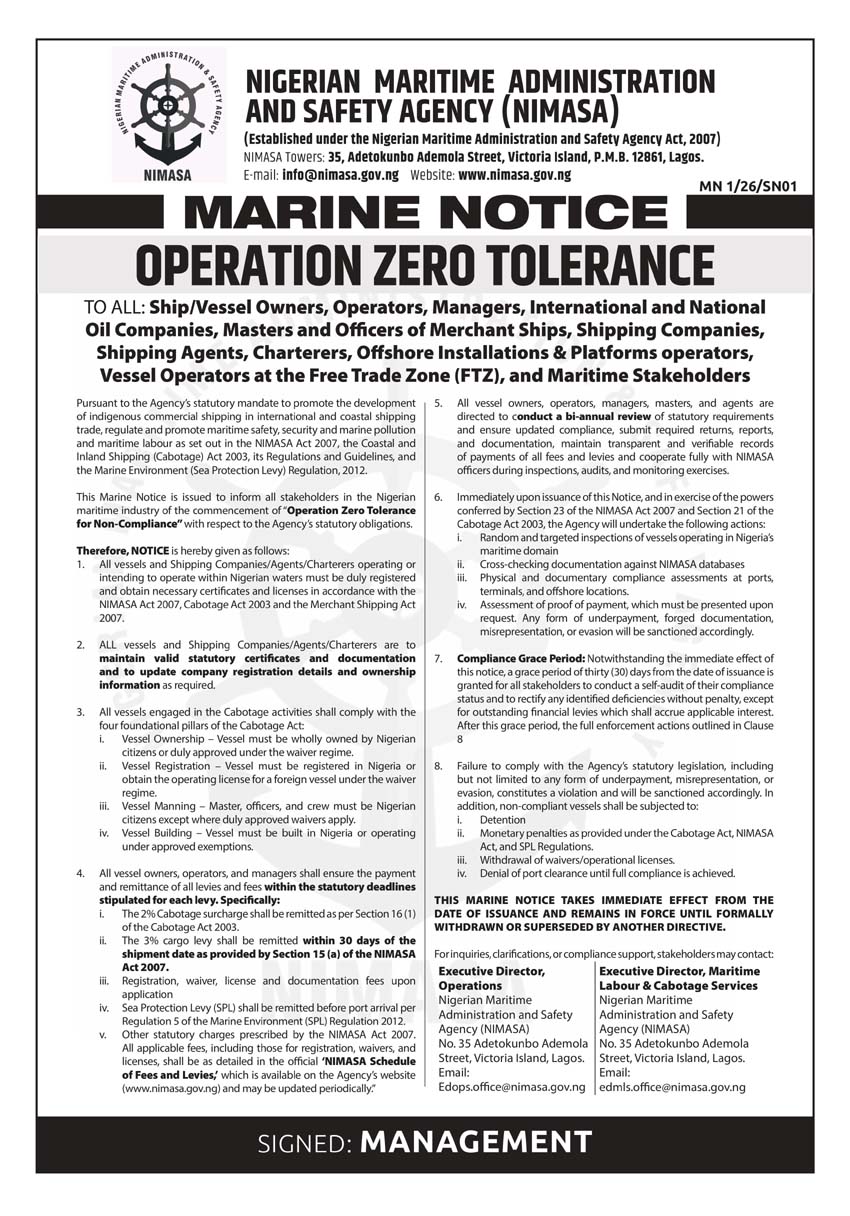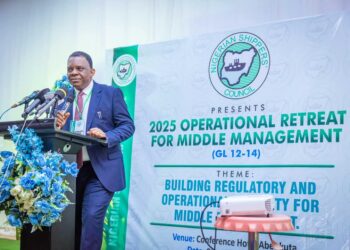From all indications, the nation’s seaports are no longer congested; at least ship’s waiting time
had reduced form the embarrassing almost eight weeks to a few days. Going by the statistics that foremost terminal operators; APM Terminal has reeled out, ships do not need to burn bunkers and accumulate unexpected extra costs while waiting for berthing facilities.
Now, Nigerian ports are almost totally back to the good old days of about 48 hours waiting time and all hands must be on deck to ensure that it does not happen again.
For the several months that congestion lasted, Lagos ports experienced total disequilibrium between incoming cargo and delivery of same. By this we mean that the rate of delivery could not match the rate at which cargo-laden vessels are arriving. The result is that every available stacking space was taken over by laden containers resulting in the bottleneck.
Even though it was not the first time that the ports in Lagos were experiencing congestion, the recent one lasted for an unprecedented too long a time.
It is shocking that with all their ‘so called’ expertise in cargo handling, the terminal operators were not able to solve the problem, but rather chose to buck- pass and come up with different kind of charges which at the onset they thought could address the issue.
While it is true that importers and their licensed customs agents did contribute to the events leading to congestion, the terminal operators also thought it was something that they could easily handle by pronouncing all manners of levies which eventually added to the problem.
The recent problem also confirms how easy it is for government agencies and functionaries to make pronouncements on either the cause(s) or the solution. While the Nigeria Customs Service read the riot act, Nigerian Ports Authourity simply decreed some measures especially as it concerns issuance of ship entry notice to vessels coming to Lagos ports.
The top level visitations and the usually accompanying press statements are akin to playing to the gallery. When things happen in this country, it is not unusual to see government functionaries pay visitations, make speeches and give assurances, after which, nothing happens, until it reoccurs.
We however associate with the road map that have been pointed at by some stakeholders who have suggested a reversal of some perceived bad policies of the government, a more serious approach to the development of inland container depots (ICDs) and a deliberate policy of using intermodal transportation system to tackle haulage of containers from the ports.
We suggest that rather than wait until the ports become congested again (sooner or later), government and all its functionaries should take the bull by the horns and adopt some of the recommendations that have been thrown in its laps by some stakeholders.
We had written in November last year that congestion may be a thing of the past if only the terminal operators could provide more cargo handling plants, if Customs and inspection agents could review their approaches and if importers embrace integrity and best practices.
Experiences of the past few months have shown that mere words are not enough to put an end to port congestion, neither are threats or administrative fiat sufficient enough to deter saboteurs of the system from their condemnable acts of circumventing the system.
What one can add to these is that the various ICDs that are being midwifed by the Nigerian Shippers’ Council should come on stream; there should be more off-dock facilities to take the pressure off port terminal facilities.
Sesan Onileimo (FNIS)
















Discussion about this post